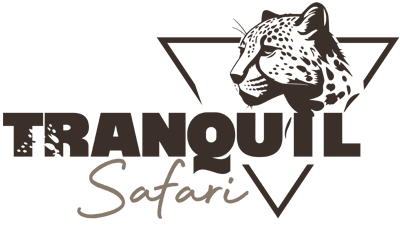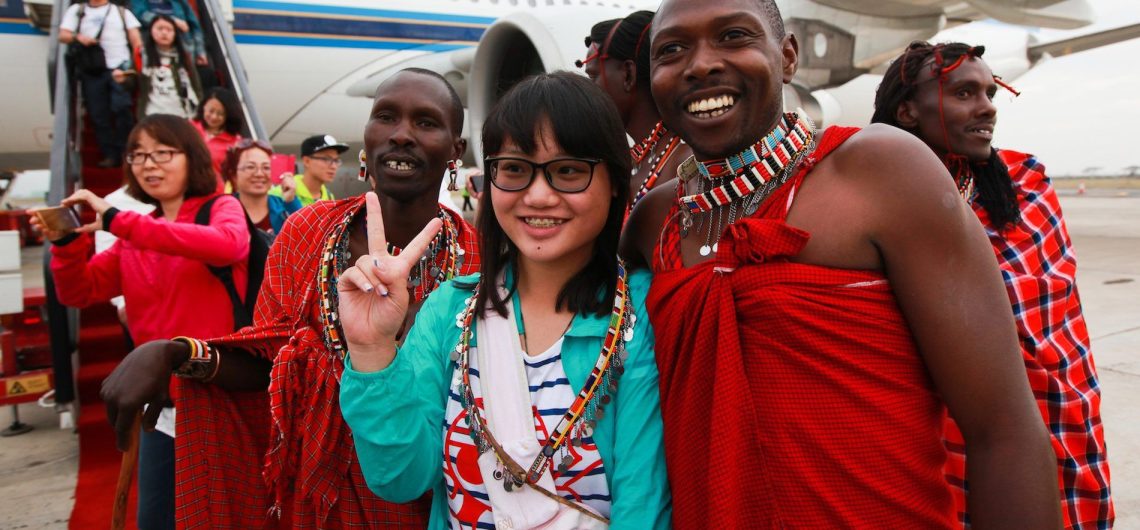With the ever growing globalisation, learning a new language for travellers especially safari goers has now been made easy, thanks to apps and online resources like duolingo swahili courses and google translate.
JAMBO is one of the most common words you will hear spoken throughout Kenya. This is the simplest Swahili greeting, and is often the first word learned by visitors to Kenya.
Swahili (locally referred to as Kiswahili) is Kenya’s national language. Swahili originated on the East African coast, as a trade language used by both Arabs and coastal tribes.
The language incorporated elements of both classical Arabic and Bantu dialects, and became the mother tongue of the Swahili people who themselves rose from the intermarriage of Arab and African cultures.
The word Swahili itself came from the Arabic for ‘coast’ Sahel. But the language became a pervasive influence, and a regional lingua franca, becoming widely used throughout Kenya and Tanzania.
Today, the language is also used in regions of Ethiopia, Sudan, Uganda, Rwanda, Burundi, the Congo and Zambia, and is the most widely spoken African language. In Kenya, most people generally speak a tribal language at home, use Swahili as an everyday language, and English for business.
Swahili is a relatively simple language, being highly phonetic with a rigid grammar. The only difficulty in learning Swahili comes from the extensive use of prefixes, suffixes and infixes, and a class system for nouns.
Coastal Swahili remains the most pure, and the Island of Zanzibar is considered the home of the language. The further away from the coast that you travel, the less sophisticated the language generally becomes, and grammar is slightly more flexible. Nairobi has now become the home of Sheng, a fashionable Creole of Swahili, Kikuyu, English and slang.
Still, even a little Swahili goes a long way in Kenya. It is worth learning a little, and most Kenyans are thrilled to hear visitors attempt to use any Swahili at all.
Below are some useful swahili words, greetings and phrases for your safari in East africa.
| Useful Greetings in swahili | |
|---|---|
| Jambo or Hujambo | Hello, good day, how are you? (multi-purpose greeting, means”problems?”) |
| Jambo or Sijambo | (the response)No problems |
| Habari? | How are things? (literally”news?”) |
| Nzuri | Fine, good, terrific |
| Hodi! | Hellow? Anyone in? (said on knocking or entering) |
| Karibu | Come in, enter, welcome(also said on offering something) |
| Kwaheri/ ni | Goodbye to one/ many |
| Asante/ ni | Thank you to one/ many |
| Sana | Very(acommon emphasis) |
| Bwana | Mister, the equivalent of monsieur in French |
| Mama | Like the French madame or madamoiselle, for adult women |
| Kijana | Youth, teenager(pl,vijana) |
| Mtoto | Child, kid(pl,watoto) |
| Jina lako nani? | What’s your name?/ What |
| Unaitwaje? | Are you called? |
| Swahili Basics | |
|---|---|
| My name is / I am called | Jina langu ni/ Ninaitwa |
| Where are you from? | Unatoka wapi? |
| Where are you staying? | Unakaa wapi |
| I am from | Ninatoka |
| I am staying (at / in). | Ninakaa |
| See you | Tutaonana ( Lit. “We shall meet”) |
| Yes | Ndiyo (Lit. it is so) |
| No | Hapana |
| I don’t understand | Sifahamu / Sielewi |
| I don’t speak Swahili but | Sisemi Kiswahili, lakini |
| How do you say in Swahili? | Unasemaje na Kiswahili |
| Could you repeat that? | Sema tena (Lit. speak again) |
| Speak slowly | Sema pole pole |
| I don’t know | Sijui |
| Where? | Wapi? |
| Here | Hapa |
| When? | Lini? |
| Now | Sasa |
| Soon | Sasa hivi |
| Why? | Kwa nini? |
| Because | Kwa sababu |
| Who? | Nani? |
| What? | Nini? |
| Which? | Gani? |
| True | kweli |
| And/with | na |
| Or | au |
| (It) is (they) are | Ni (a useful connector Ni (a useful connector when you
Ni(a useful connector when you |
| Isn’t it? | Siyo? |
| I’m British / American / German / French / Italian | Mimi Mwingereza / Mwamerika / Mdachi / Mfaransa / Mwitaliano |
| DAILY NEEDS IN KISWAHILI | |
|---|---|
| Where can I stay? | Naweza Kukaa wapi? |
| Can I stay here? | Naweza kukaa hapa? |
| Room/s | Chumba/vyumba |
| Bed/s | Kitanda/vitanda |
| Chair/s | Kiti/viti |
| Table/s | Meza |
| Toilet, bathroom | Choo, bafu |
| Washing water | Maji ya kuosha |
| Hot/cold water | Maji moto/baridi |
| I’m hungry | Ninasikia njaa |
| I’m thirsty | Nina kiu |
| Is there any? | Iko… or Kuna?… |
| Yes there is… | Iko…or kuna… |
| No there isn’t any | Hakuna |
| How much? | Ngapi? |
| money | Pesa |
| What price? | Bei gani? |
| How much does it cost? | Pesa Ngapi? |
| I want… | Nataka |
| I don’t want | Sitaki |
| Give me/Bring me (can I have?) | Nipe/Niletee |
| Again | Tena |
| Enough | Tosha/basi |
| Expensive | Ghali/sana |
| Cheap (also”easy”) | Rahisi |
| Fifty cents | Sumni |
| Reduce the price,come down a little | Punguza kidogo |
| Shop | Duka |
| Bank | Benki |
| Post office | Posta |
| Café,restaurant | Hoteli |
| Telephone | Simu |
| Cigarettes | Sigara |
| I’m ill | Mimi mgonjwa |
| Doctor | Daktari |
| Hospital | Hospitali |
| Police | Polisi |
Travel And Directions in Swahili Language |
|
|---|---|
| Bus/es | Bas,basi / mabasi |
| Car /s, Vehicle/ s | Gari/ Magari |
| Taxi | Teksi |
| Bicycle | Baiskeli |
| Train | Treni |
| Plane | Ndege |
| Boat / Ship | Chombo / Meli |
| Petrol | Petroli |
| Road, path | Njia/ ndia |
| Highway | Barabara |
| On foot/ Walking | Kwa miguu |
| When does it leave | Inaondoka lini? |
| When will we arrive? | Tutafika lini? |
| Slowly | Pole pole |
| Fast, quickly | Haraka |
| Wait! / hang on a moment! | Ngoja!/ ngoja kidogo! |
| Stop! | Simama! |
| Where are you going | Unaenda wapi |
| To where? | Mpaka wapi? |
| From where? | Kutoka wapi? |
| How many kilometers? | Kilometa ngapi? |
| I’m going to | Naenda |
| Move along, squeeze up a little | Songa!/ songa kidogo! |
| Let’s go, carry on | Twende, endelea |
| Straight ahead | Moja kwa moja |
| Right | Kulia |
| Left | Kushoto |
| Up | Juu |
| Down | Chini |
| I want to get off here | Nataka kushuka hapa |
| The car has broken down | Gari imearibika |
| East Africa Time Calendar And Number in Swahili | |
|---|---|
| What time is it? | Saa ngapi |
| Four o’clock | Saa kumi |
| Quarter past | Na robo |
| Half past | Na nusu |
| Quarter to | Kaso robo |
| Minutes | Dakika |
| Early | Mapema |
| Yesterday | Jana |
| Today | Leo |
| Tomorrow | Kesho |
| Day time | Mchana |
| Night time | Usiku |
| Dawn | Alfajiri |
| Morning | Asubuhi |
| Last/ this/ next week | Wiki iliopita/ hii/ ijayo |
| This year | Mwaka huu |
| This month | Mwezi huu |
| Monday | Jumatatu |
| Tuesday | Jumanne |
| Wednesday | Jumatano |
| Thursday | Alhamisi |
| Friday | Ijumaa |
| Saturday | Jumamosi |
| Sunday | Jumapili |
| 1 | Moja |
| 2 | Mbili |
| 3 | Tatu |
| 4 | Nne |
| 5 | Tano |
| 6 | Sita |
| 7 | Saba |
| 8 | Nane |
| 9 | Tisa |
| 10 | kumi |
| 11 | Kumi na moja |
| 12 | Kumi na mbili |
| 20 | Ishirini |
| 21 | Ishirini na moja |
| 30 | Thelathini |
| 40 | Arobaini |
| 50 | Hamsini |
| 60 | Sitini |
| 70 | Sabini |
| 80 | Themanini |
| 90 | Tisini |
| 100 | Mia moja |
| 121 | Mia moja na ishirini na moja |
| 1000 | Elfu |
| Signs in Swahili | |
|---|---|
| Danger! | Hatari! |
| Warning! | Angalia!/ Onyo! |
| Fierce dog! | Mbwa mkali! |
| No entry! | Hakuna njia! |
Swahili Words Worth Knowing |
|
|---|---|
| Good | -zuri (with a prefix at the front) |
| Bad | -baya (ditto) |
| Big | -kubwa |
| Small | -dogo |
| A lot of | -ingi |
| Other/ Another | Ingine |
| Not bad | Si mbaya |
| Ok, right, fine | Sawa |
| Fine, cool | Safi |
| Completely | Kabisa |
| Just, only | Tu (kitanda kimoja tu-just ona bed) |
| Thing/ s | Kitu/ vitu |
| Problems, hassles | Wasiwasi, matata |
| No problem | Hakuna wasiwasi/ Hakuna matata |
| Friend | Rafiki |
| Sorry, pardon | Samahani |
| It’s nothing | Si kitu |
| Excuse me (let me through) | Hebu |
| What’s up? | Namna gani? |
| If God wills it | Inshallah (heard often on the coast) |
| Please | Tafadhali |
| Take a picture of me! | Piga picha mimi! |
| Help the poor! | Saidia maskini! |
![]()


Comments